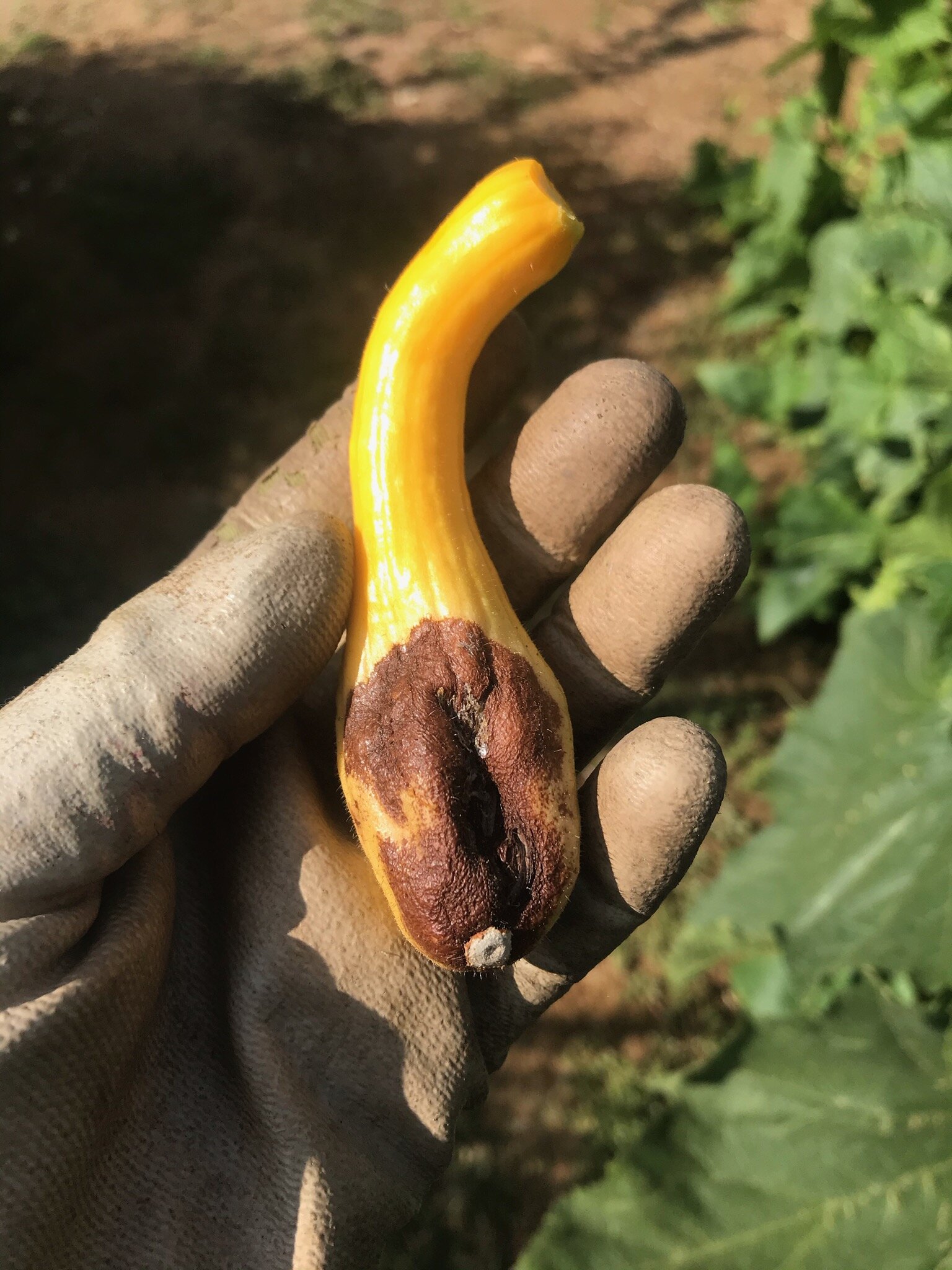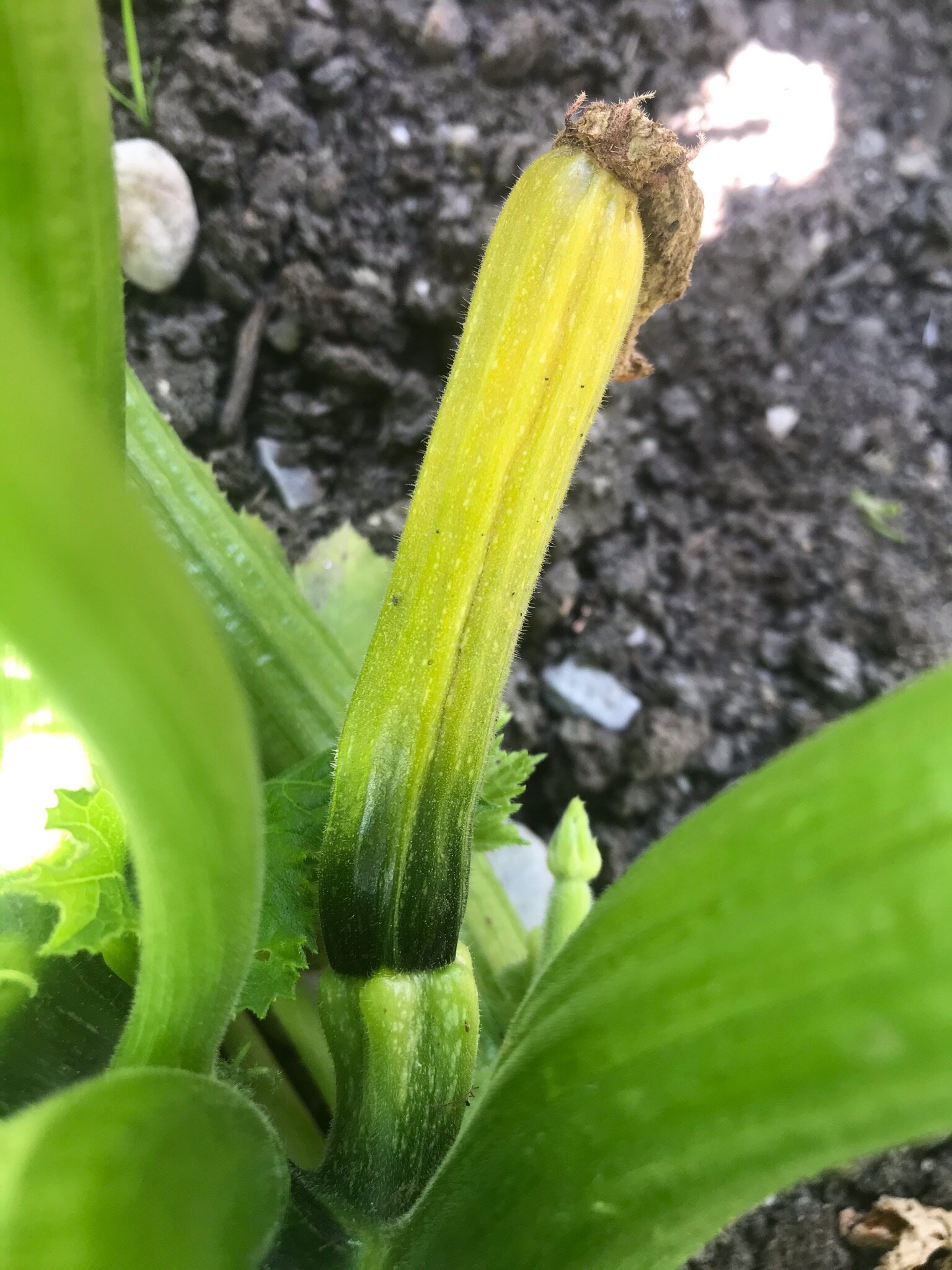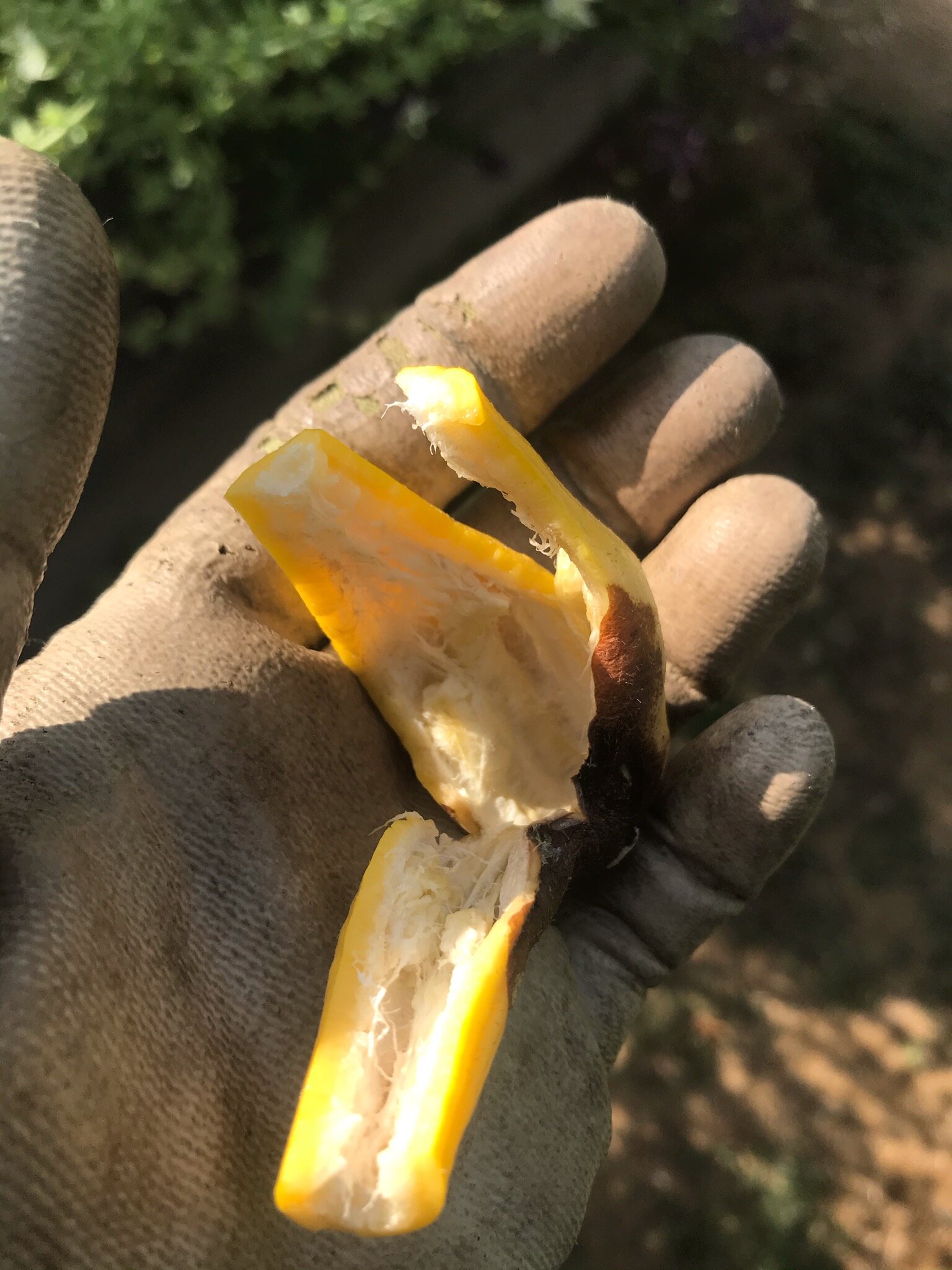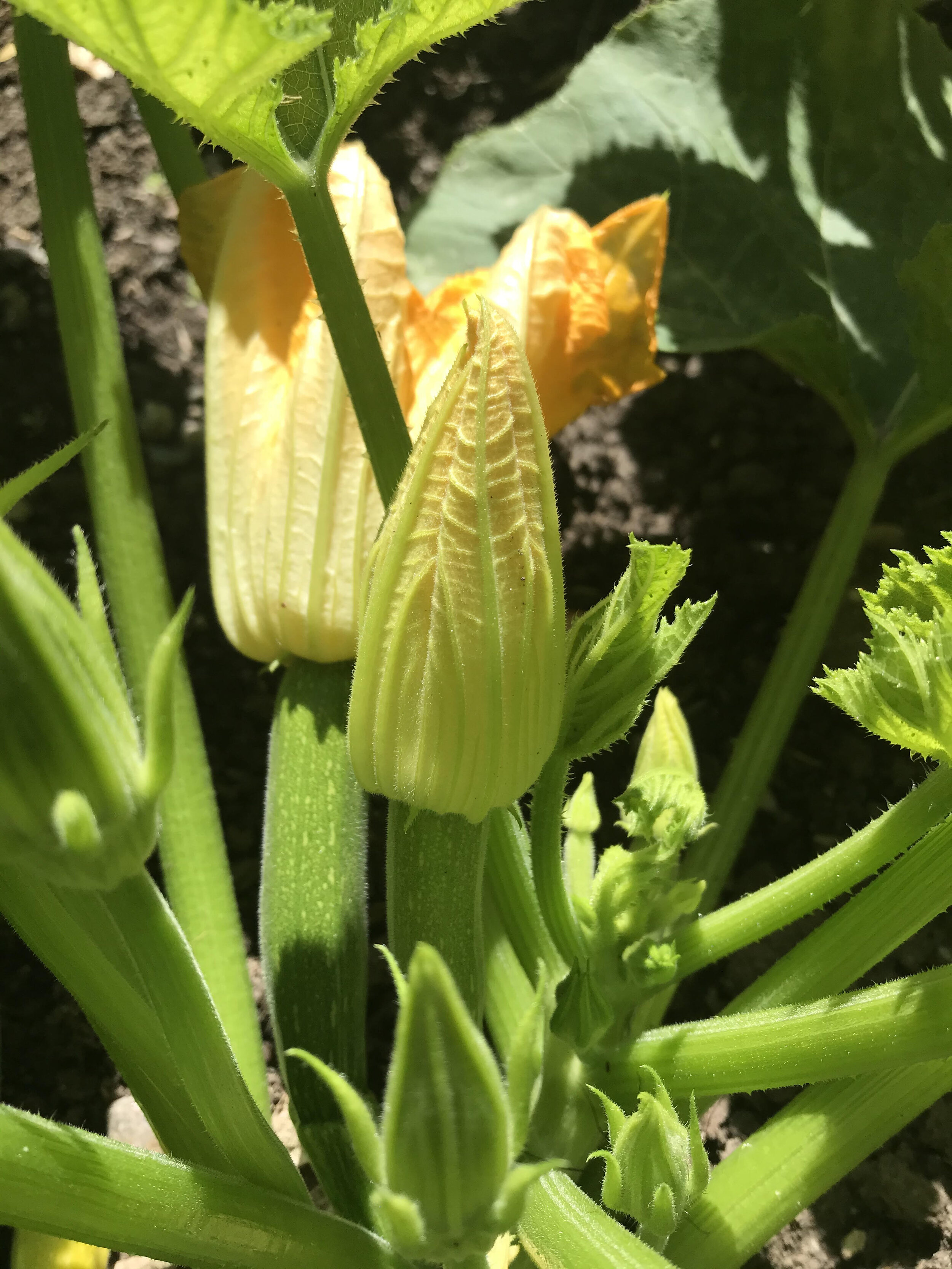Incomplete Pollination
Zucchini, or summer squash, are long hailed as the never-ending producer of the garden. Often gardeners can be inundated with so much zucchini that I even made a wheel of 50 zucchini recipes to keep creative in our ways of eating it. I think of all summer squash as low maintenance and abundant, which is why I was so befuddled to run into problems in my garden midsummer.
This year, my summer squash are struggling. Some of my fruits have been hollow, misshapen, or yellow and rotting at the ends. Though this can look a lot like Blossom End Rot, zucchini are more likely to be affected by something else: incomplete pollination.
What is incomplete pollination?
To better understand this ailment, we’ve got to flash back to biology class. Plants reproduce through pollination, and the fertile offspring of the plant is the fruit we eat. The squash family (I’m talking summer and winter squash) are monoecious. This means that each plant produces both male and female flowers. Female flowers (left) have immature fruits at the base of the flower, whereas male flowers (right) grow on top of a long, slender stem.
Pollination happens when pollen is moved from the male to the female flowers, which triggers fruit production.
When the female flowers aren’t completely pollinated, the plant will abort the fruit and channel energy into other fruit production. That’s what has happened to the photos above. Note: When you see this happen, it’s best to remove the fruit quickly so it doesn’t rot in place.
What causes incomplete pollination?
Bees are the primary movers of pollen, and incomplete pollination is a sign (1) you’re lacking bees, (2) it’s not a good environment for bees to collect pollen, or (3) there aren’t healthy flowers on your squash for them to pollinate. Let’s explore these further.
Lacking Bees
Your vegetable gardens need bees, but bees often need more than vegetables to survive. Few or no bees in your garden could be a sign you’re lacking flowers or flowering plants to attract and support bee activity. If you’re using pesticides in your garden, it’s possible they are killing bees.
Environmental Problems
Bees are fairly particular. Bees don’t want to collect pollen if it’s too cold, raining, or they have to work too hard. (I get it—who wants to work in the cold or the rain if they don’t have to?) Poor pollination can be the result of cold, rainy days at the time those female flowers were blooming, or the plants are too spaced out for the bees to pollinate effectively. Bees are most attracted to clusters of flowers, or clusters of flowering plants. If your squash are all by their lonesome, bees may not bother.
No Squash Flowers
Incomplete pollination could also be the result of something happening in your plant that means little or no flowers are being produced. In the beginning, zucchini only produce male flowers, so if early on you’re seeing flowers but no squash, that’s okay. The plants are training bees to come by and look for pollen. Later on in the season though, it could be other factors. The plants could be too crowded, drought stressed, fighting off a pest or disease, or over fertilized. (Too much nitrogen heavy fertilizer encourages the plant to develop leaves, but sometimes at the expense of flowers).
What can we do about it?
The summer squash at the Providence Garden are surrounded by annual and perennial flowers to attract pollinators.
Plant with pollinators in mind
Though I’ve always loved flowers, I used to struggle devoting some of my limited garden space to something that only provided beauty. Then I realized that thinking is false—not only do flowers bring me joy, but they bring in pollinators! Flowers should be thought of as a necessary tool in growing vegetables. Check out the Lolo National Forest’s publication on attracting pollinators to your garden for some inspiration and ideas. We have a lot of flowers planted at the Providence Garden for this very reason, and in previous years, we’ve had abundant zucchini harvests, so I don’t think this is my problem…
Create a proper environment for pollination
Remember how bees don’t like to work in the rain? This includes “rain” from over head watering. I realized my pollination was low at the Providence Garden because I was over-head watering in the morning when bees are most active. To remedy this, I switched my watering to be in the late afternoon. Now, bees can pollinate without being rained on, or coming across flowers filled with water.
Minimize plant stress.
Make sure you’re watering adequately, managing pests, and have good spacing between your plants.
Reduce (or eliminate!) pesticide use.
Remember, pesticides don’t just affect pests, but many beneficial insects as well.
Fertilize properly.
Too much nitrogen encourages the plant to focus on leaf, and not flower, development.
If you need to save your zucchini harvest fast, you can try hand pollinating to increase pollination in the short term. And, remember to thank the bees next time you’re harvesting from your garden!






